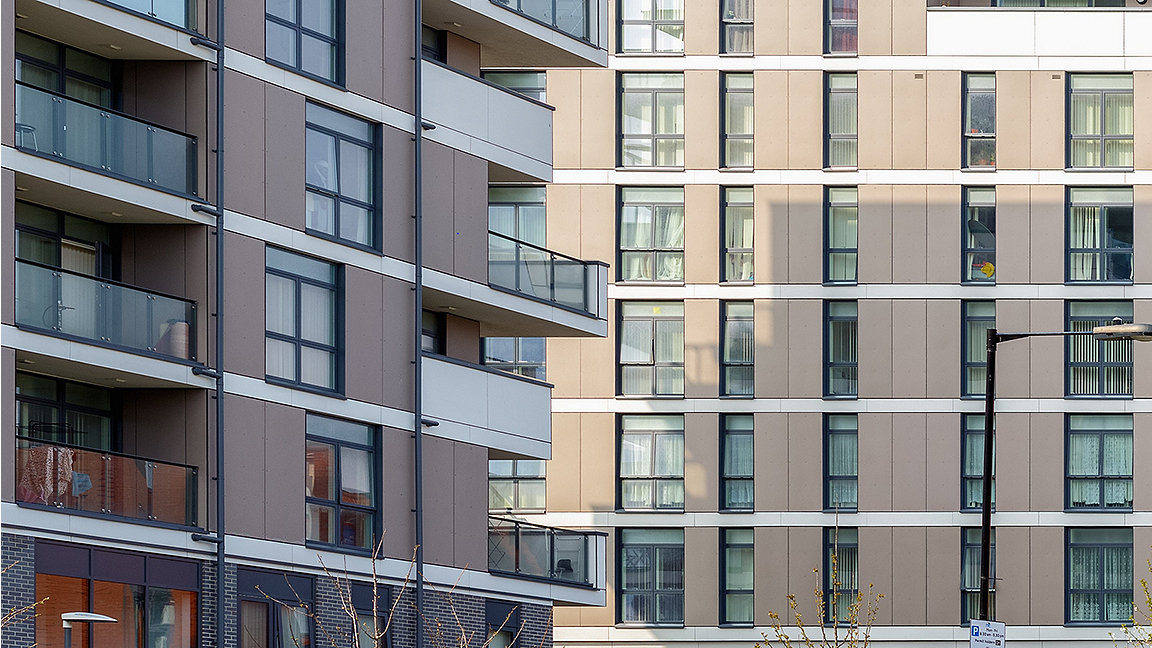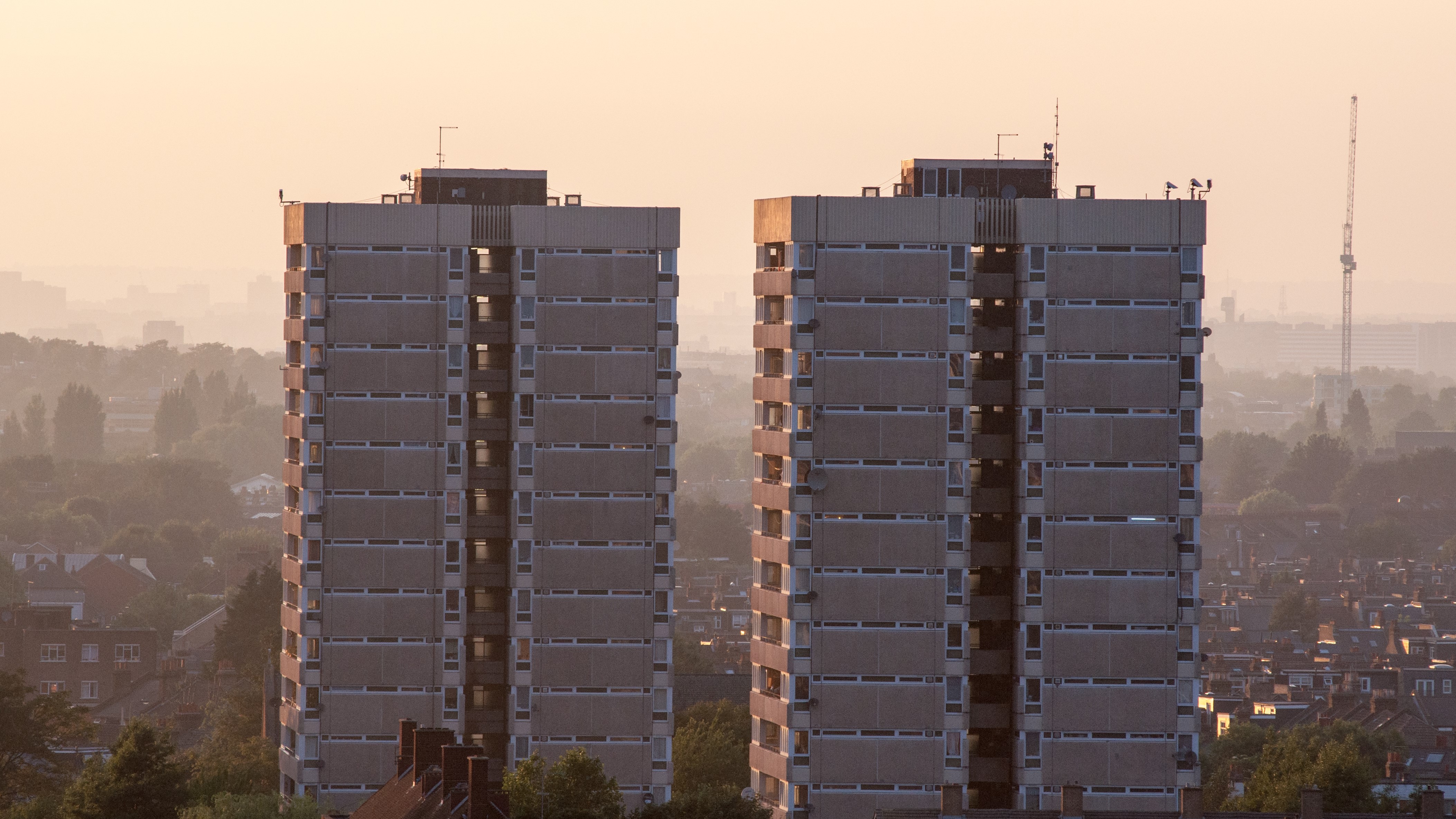
Few would argue against the recommendations of Dame Judith Hackitt's 2018 report, Building a Safer Future, which advocated 'increased levels of competence [as] an integral part of the proposed new regulatory framework'.
The subsequent Building Safety Act 2022 has implemented that framework, and also requires improvements in the way that the competence of professions and trades across the built environment is assessed and verified.
The Building Safety Regulator
The aim of establishing a new Building Safety Regulator (BSR) in England under the auspices of the Health and Safety Executive (HSE) is to create a more robust safety regime, so that tragedies like that at Grenfell Tower do not happen again. However, the changes required to make the regime effective and fit for purpose must be embraced by everyone working in the built environment.
One of the most significant measures in the 2022 Act is the regulation of building control as a profession. All professionals in the discipline – whether working in the private or public sector, on whatever type or height of building – will be required to demonstrate their competence to register with the regulator if they want to continue to practise.
Competence framework under development
The proposed building inspector competence framework – on which we at the BSR have recently consulted – sets out the skills, knowledge, experience and behaviours that building control professionals will need to demonstrate to register with us. Improved competence is essential to ensuring buildings that are safe.
The proposed competence framework is split into nine interrelated subject areas, broadly covering technical competence, competent application of knowledge and understanding in core building inspection functions and activities, and management competence. We published an early draft of the framework last May, and since then have engaged closely and actively with the building control sector, including RICS, to develop it further.
Following the closure of consultation on the latest version in December, we are now assessing all the feedback we have received to inform a final version that we intend to publish in April.
We expect that, subject to secondary legislation, the BSR register for building inspectors will open in October. From April 2024, to be able to undertake certain building control activities and functions, respectively, individual professionals and private-sector organisations – currently known as approved inspectors – will need to be registered.
However, it is important to note that while registration will become a legal requirement in April next year, there is no formal deadline; registration and re-registration will be an ongoing process for individuals and organisations.
Professionals will register in one of four classes from class 1, assistant or associate building inspector, through classes 2 and 3, standard and complex respectively, to class 4, manager. Those who want to change registration category will need to demonstrate that they meet the competency requirements across the nine subject areas.
'Improved competence is essential to ensuring buildings that are safe'
Offering time and support to prepare
Preparation is key, so we encourage everyone working in the building control profession to look at the proposed framework and reflect on what further training and development they may need if they are to fulfil its requirements.
It is also worth individuals gathering evidence of the work they have done, and undertaking the Building Safety Competence Foundation (BSCF) assessment.
We are confident that by publishing the final version of the framework in April – 12 months ahead of the introduction of mandatory registration in 2024 – we will give the profession ample time to prepare.
There will also be a programme of support and guidance ahead of registration to help individuals and employers understand what they need to do to meet the requirements, as well as how to register.
In our roles as building control professionals, we can and should be united in a collective commitment to improve building safety, and to ensure that residents not only are safe but also feel safe in their homes.
Addressing profession's questions and concerns
We understand you will have questions relating to the framework and your registration as a building inspector, so we offer answers to some queries that have been frequently raised with us by building control professionals and stakeholders.
Q: How does the BSR see the role of professional bodies in relation to registration, and should they be setting up their own registers?
A: We believe professional bodies such as RICS have an important role to play in working with the BSR, supporting their members, helping them meet the new requirements – such as the competence framework and the code of conduct that is proposed to accompany it – and, crucially, ensuring their members' interests are represented in discussions with the regulator.
We also see potential for professional bodies to develop accredited competence verification systems, such as the assessment that the BSCF has implemented for its members.
We are happy to talk to professional bodies about how such systems could be aligned with the competence framework and the registration requirements, so we can accept them as sufficient demonstration of competence.
Q: Will there be a phased transition period for professionals who will not have completed training by 1 October, to allow them to continue practising?
A: While we expect the register to open in October 2023, registration will not become mandatory until April 2024. The final competence assessment and verification model is still being developed; however, the BSR certainly recognises this is a key concern for the building control profession.
We are currently looking at the feasibility of transitional arrangements and different routes to demonstrate competence that will meet the BSR's requirements, and will be providing further details on these arrangements over the coming months.
Q: Is it likely that skilled, experienced professionals will be exempt from having to demonstrate compliance to get on to the register?
A: The details of how the verification of competence will operate are being worked on, but we do not anticipate exemption of this kind. The reason is that we do not believe this approach would serve the objective of encouraging raised standards in the profession. However, we certainly appreciate the need to ensure that enough professionals are registered to help fulfil the building control function.
Over the coming months we will publish further information, and we would urge everyone to sign up to the monthly BSR bulletin to keep up to speed with developments.
Q: There are significant concerns in both public- and private-sector building control that inspectors will leave the profession and move to other areas of work or retire early. How do you respond to these concerns?
A: We certainly appreciate that it is a daunting prospect for experienced building control professionals to have to put themselves through a process for demonstrating their competence to do their job.
However, we absolutely need to be positive about the changes, and find ways of encouraging these professionals to do the right thing and demonstrate their competence.
Above all, we must focus on the reason we are doing this. Making building control a regulated profession that is required to demonstrate its competence to the regulator is part of the legacy of the Grenfell Tower fire. It is also one way of assuring the public that buildings are designed, built and maintained safely.

